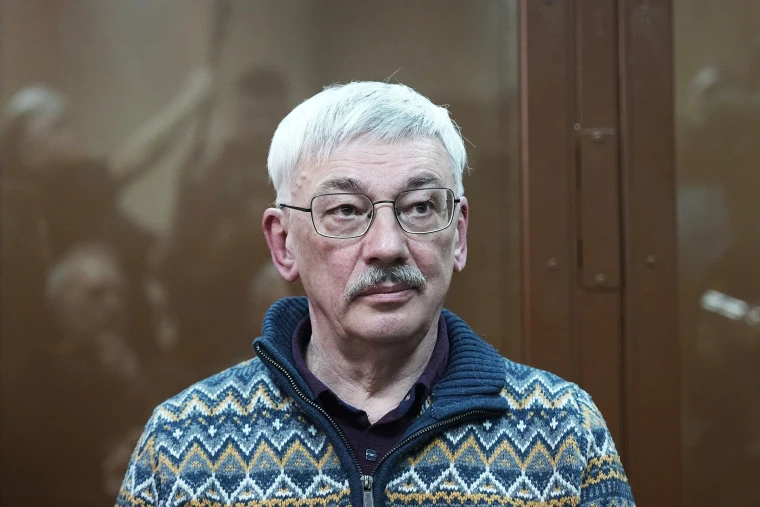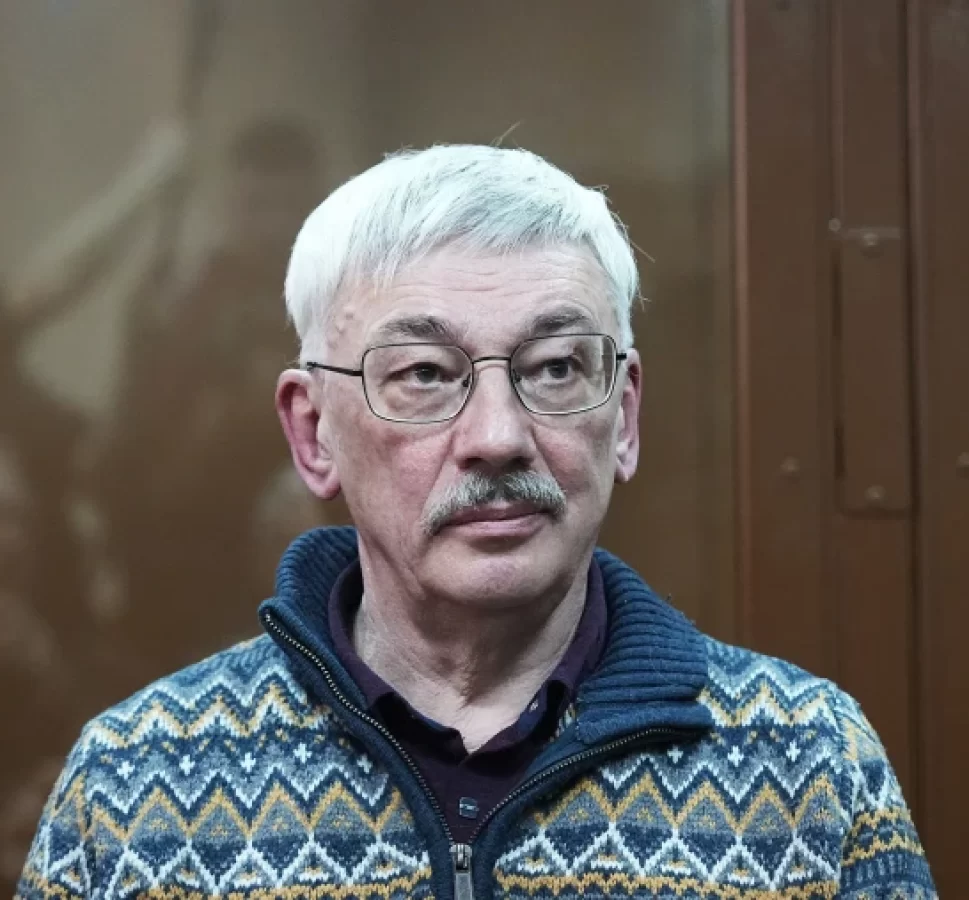
Moscow court finds veteran human rights advocate who spoke out against the war in Ukraine guilty of discrediting armed forces.
A Russian court has sentenced prominent human rights campaigner Oleg Orlov to two-and-a-half years in prison after he was found guilty of discrediting the army.
Footage posted online on Tuesday by Memorial, a now-banned Russian human rights group, showed the handcuffed 70-year-old smiling as he was put by officers in a van after the verdict by the Golovinskii district court in Moscow.
Nobel Prize-winning Memorial, which has Orlov as its co-chairperson, slammed the trial as “a mockery of justice and an attack on the fundamental right to free expression”. It said in a statement cosigned by dozens of rights groups that the campaigner’s legal team would appeal the verdict and pledged to continue its work.
Human rights groups say the targeting of Kremlin critics has escalated since Russia launched a full-scale invasion against Ukraine in February 2022.
The case against Orlov was based on an article he wrote that year in which he denounced the invasion and said Russia, under the leadership of President Vladimir Putin, had descended into “fascism”.
A district court initially fined him 150,000 roubles ($1,629), but a retrial was ordered, and prosecutors sought a jail sentence of two years and 11 months.
The prosecution claimed that Orlov published the article motivated by hostility “against traditional Russian spiritual, moral and patriotic values” and hatred of the Russian military, according to independent Russian news outlet Mediazona.
In his closing remarks on Monday, Orlov said he had committed no crime and regretted nothing, instead slamming the “totalitarian” and “fascist” Russian state.
“All these are links in the same chain: The death, or rather, the massacre of Alexey [Navalny], the judicial reprisals against other critics of the regime, including me, the strangulation of freedom in the country, the entry of Russian troops into Ukraine.”
Navalny, an opposition politician and staunch Kremlin critic, died suddenly earlier in February in an Arctic penal colony.
While the circumstances of his death remain unclear, many, including world leaders and activist groups, blame Russian authorities for his death. The Kremlin rejected the allegation as “unsubstantiated and groundless.”
‘Silencing’ human rights activists
The UN special rapporteur on human rights in Russia, Mariana Katzarova, called Orlov’s trial “an orchestrated attempt to silence the voices of human rights defenders in Russia”.
Orlov himself, in a recent interview with the AFP news agency, had said he held no illusions about the trial’s outcome.
Even as other campaigners fled Russia as antidefamation laws intensified and those found guilty of spreading “fake information” about the army could face up to 15 years in prison, Orlov remained in the country where he said he was “more useful” than abroad.
He told AFP his long career spent working on documenting Soviet crimes and human rights abuses in modern Russia gave him no choice but to also campaign against the invasion of Ukraine.






